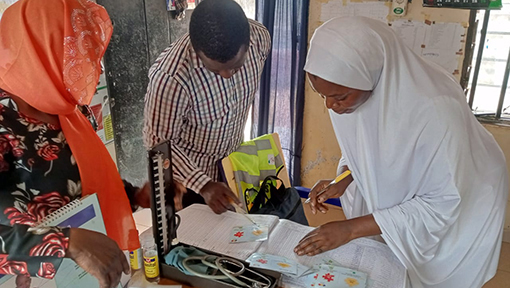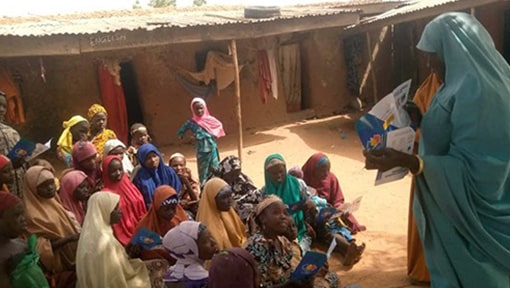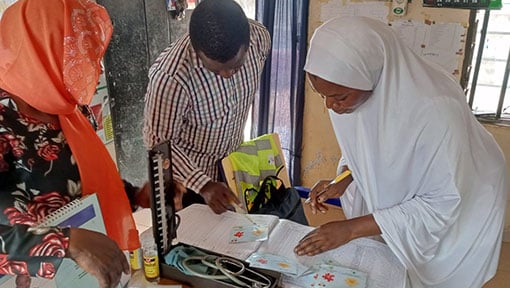Postnatal Consultations Can Be an Important Gateway for Recruiting New FP Users in Niamey, Niger
Contributors: Prudencia Ayivi, Fatimata Sow and Annette McFarland
 Niger has one of the highest fertility rates in the world with women having an average of 7.6 children there. In The Challenge Initiative (TCI) supported city of Niamey, women have an average of 5.3 children (2012 Niger DHS). One in five married women in Niger are using a modern family planning method. To improve the use of family planning services, TCI’s high-impact interventions are being implemented in all 62 health centers in the Niamey health region, including systematic identification of client needs in family planning (ISBC), special days of free family planning services (JSPF), and immediate postpartum family planning (PFPP). However, few women agree to use a method immediately after childbirth, despite PFPP counseling on available family planning methods.
Niger has one of the highest fertility rates in the world with women having an average of 7.6 children there. In The Challenge Initiative (TCI) supported city of Niamey, women have an average of 5.3 children (2012 Niger DHS). One in five married women in Niger are using a modern family planning method. To improve the use of family planning services, TCI’s high-impact interventions are being implemented in all 62 health centers in the Niamey health region, including systematic identification of client needs in family planning (ISBC), special days of free family planning services (JSPF), and immediate postpartum family planning (PFPP). However, few women agree to use a method immediately after childbirth, despite PFPP counseling on available family planning methods.
This is likely because it is a cultural practice in Niger to abstain from sex through the seventh day after childbirth, when a naming ceremony takes place. On this occasion, a feast is organized, the baby’s name is announced, visitors bring gifts to the family and an imam presides over the ceremony. Usually, the postnatal consultation coincides with the day of the naming ceremony. The new mother is happy to come to this consultation, dressed in her beautiful clothes and jewelry. At this appointment, service providers use ISBC approach to ask women about their family planning needs: do you know what family planning is? Are you using any method? Would you be interested in using a family planning method?
TCI coaches work closely with postnatal service providers to ensure that women who refused PFPP immediately after delivery are asked about their family planning needs at their postnatal consultation. TCI coaches ensure that the list of deliveries is shared with midwives working in the postnatal unit, and that a mother’s refusal of PFPP is noted in her file so the midwives in the postnatal unit can provide appropriate counseling. Health care providers have found that women are more inclined to listen to nutritional and hygienic advice and receive counseling on family planning at their postnatal consultation than immediately after delivery.
Hadjia Narba, a midwife and the Head of Postnatal Consultations/Maternity at Yantala health center, says:
Women are afraid to introduce new drugs into their body before the seventh day after childbirth, because they think they will not have sexual intercourse before the naming ceremony. Personally, I think we really need to insist on FP counseling at the postnatal consultation in order to recruit new FP acceptors just after the taboo period.”
In a recent review of 117 records of delivery at TCI-supported health facilities, two-thirds (78) of mothers adopted a family planning method at their postnatal consultation. Coaching service providers to ask women about their family planning needs every time they come to the health center has been found to be an effective approach to recruit new family planning users.






